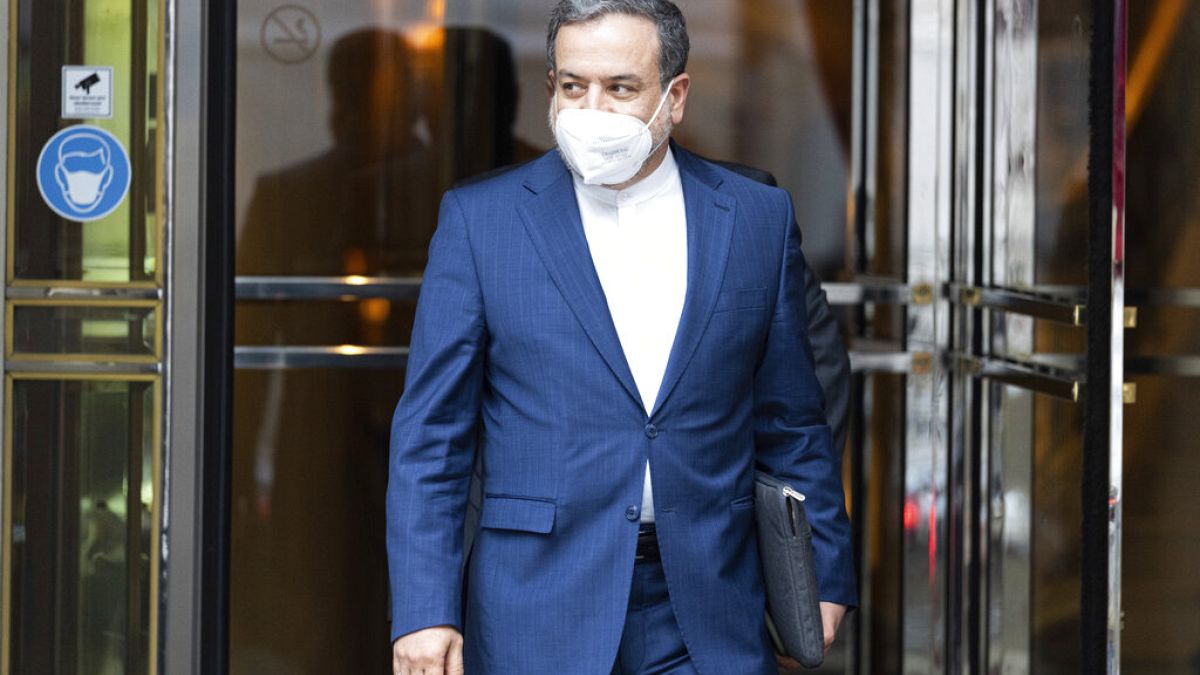Officials from the signatory states of the 2015 nuclear deal have exchanged paperwork and will shortly be returning to their home countries for a final decision, Iran's deputy said on Sunday.
Talks between Iran and global powers on salvaging the 2015 nuclear deal were due to resume on Sunday in the aftermath of a controversial new president being elected in Iran.
Senior diplomats from China, Germany, France, Russia and Britain are set to meet at the Grand Hotel in Vienna together with the Iranian negotiating team.
The Joint Comprehensive Plan of Action signed by the US under the Obama administration and the six countries aimed to curb Iran's nuclear enrichment programme in return for sanctions relief.
The Trump administration pulled out of the deal and re-imposed sanctions in May 2018, which crippled Iran's economy but also emboldened the more hardline elements of the theocratic state.
On Friday a new president of Iran, ultra-conservative judge Ebrahim Raisi, was elected in the country and will take over from the more moderate incumbent Hasan Rouhani in August.
Signatory states close to a final decision on future of JCPOA
Speaking on Sunday, Iran's outgoing deputy foreign minister for political affairs, Abbas Araghchi, said almost all of the JCPOA "agreement documents" had been readily negotiated.
“We are now in a situation [where] we think almost all the agreement documents are ready,” he told reporters in Vienna ahead of the meeting.
"Of the main issues, some have been resolved and some remain, but it has taken on a very precise form and it is quite clear what the dimensions of these disputes are."
The diplomats involved are shortly due to return to their home countries for further consultations with their respective governments.
Russian representative Mikhail Ulyanov said in a tweet on Saturday: "An agreement on restoration of the nuclear deal is within reach but is not finalised yet.”
The US has had no formal diplomatic ties with Iran since the country's 1979 Islamic Revolution, and did not have a representative at the table in this round of talks.
But a US delegation has been stationed at a different hotel in the Austrian capital and taking part indirectly, with diplomats from other countries acting as go-betweens.
Nuclear talks clouded by more cynicism than in 2015
The Biden administration has signalled its willingness to rejoin the deal on broadly the same terms as the 2015 commitment. But while this has been welcomed by many, the JCPOA is more controversial than it was nearly six years ago.
The re-imposition of sanctions has seen the Iranian economy contract sharply since 2018 while inflation has stood at 30 to 40% in recent years.
In April, the country also told the International Atomic Energy Agency it would begin enriching uranium up to 60% purity, stoking fears Iran could become capable of producing a weapon.
Some observers believe the US re-joining the JCPOA is, therefore, a matter of urgency. The outgoing Rouhani administration is keen to salvage the deal so as to secure its own political legacy, while the EU was Iran's biggest trading partner prior to 2018.
Others in both East and West, however, are less convinced by the benefits of a return to the deal.
Sporadic protests have been held outside the Grand Hotel in spring 2021 by Iranians who fear the talks will lend international credence to an undemocratic state with a track record of grave human rights abuses - something the current stipulations of the JCPOA do not cover.
Other US observers, including many Republican politicians, do not believe that the unelected state in Iran, which holds most of the real decision-making power, will adhere to the terms of a fresh deal in any event.
Iran's president-elect and current Chief Justice, Ebrahim Raisi, cannot take part in any aspect of the talks because he is sanctioned by both the US and the EU over his involvement in the mass execution of political prisoners in 1988.
Israel's newly-anointed prime minister Naftali Bennett has also piled pressure on Biden to rethink the deal, saying the outcome of Iran's election on Friday was a sign the US needed to "wake up."
Speaking at his first cabinet meeting since swearing-in on Sunday, Bennett said Raisi's election was “the last chance for the world powers... to understand who they’re doing business with."
